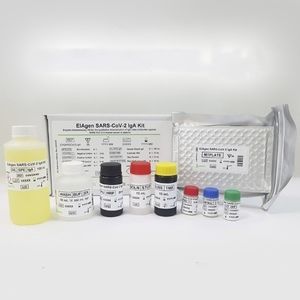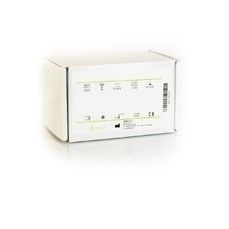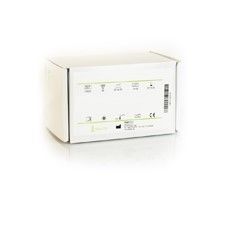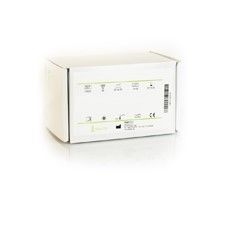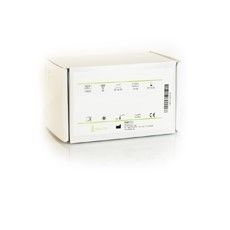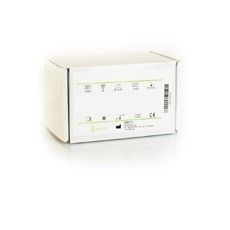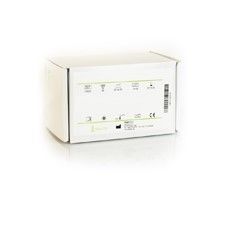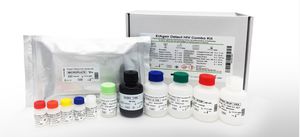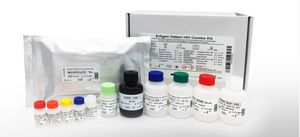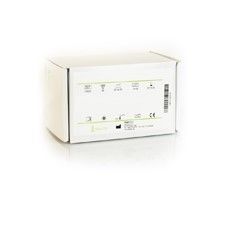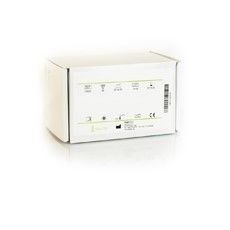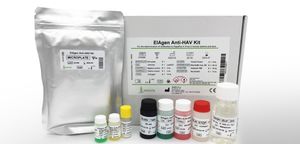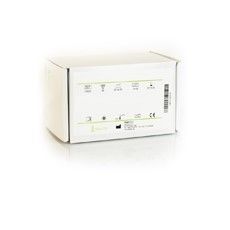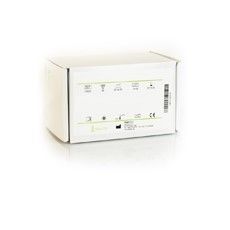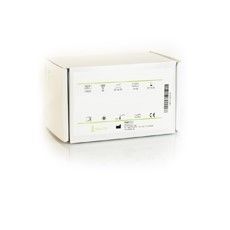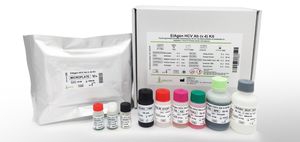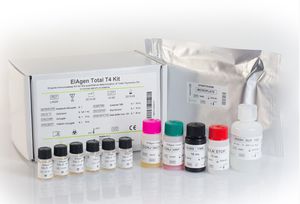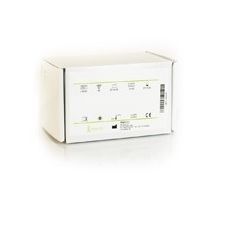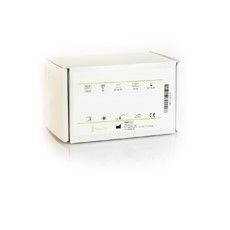
Toxoplasmosis test kit EIAgen for researchrheumatoid factorIgG
Add to favorites
Compare this product
Characteristics
- Applications
- for toxoplasmosis, for research
- Tested parameter
- rheumatoid factor, IgG
- Micro-organism
- Toxoplasma gondii
- Sample type
- serum, plasma
- Analysis mode
- enzyme immunoassay
Description
Enzyme ImmunoAssay (ELISA) kit for the quantitative/qualitative determination of IgG antibodies to Toxoplasma gondii in human serum or plasma. For Research Use Only.
Introduction
Toxoplasma gondii (T.gondii) is an obligate intracellular protozoan parasite that is probably capable of infecting all species of mammals, including man. The separately detection of specific IgG and IgM antibodies to T.gondii is particularly helpful for the diagnosis of acute infections in “risk” individuals, in association with AIDS, organ transplantation and pregnancy. As most of T.gondii infections are mild or asymptomatic in otherwise healthy individuals, the detection of T.gondii specific IgM antibodies, in absence of detectable specific IgG, has become important for the monitoring of acute infections in pregnant women, as the parasite can lead to severe birth defects. Moreover, as T.gondii infections are most severe in immunocompromised patients, where the disease can be fatal, acute infections due to this parasite have to be distinguished from other disorders. In addition, recently developed IgM assays by the capture method provide the clinician with a helpful and reliable test, not affected by the rheumatoid factor as it happens to be in classic sandwich tests.
Principle of the Method
Microplates wells are coated with native T. gondii antigens, highly purified by sucrose gradient centrifugation and inactivated.
The diluted sample is incubated into the coated wells and, if present, the specific antibodies to T. gondii are bound, , by the coated antigens.
Related Searches
- Assay kit
- Solution reagent kit
- Blood assay kit
- Molecular biology reagent kit
- Serum assay kit
- Immunoassay assay kit
- Plasma assay kit
- Infectious disease detection kit
- Diagnostic reagent kit
- Molecular test kit
- Respiratory infection test kit
- Whole blood detection kit
- Optical assay kit
- Clinical assay kit
- Dye reagent
- Buffer solution reagent kit
- Fluorescence assay kit
- COVID-19 detection kit
- ELISA assay kit
- Real-time PCR test kit
*Prices are pre-tax. They exclude delivery charges and customs duties and do not include additional charges for installation or activation options. Prices are indicative only and may vary by country, with changes to the cost of raw materials and exchange rates.





